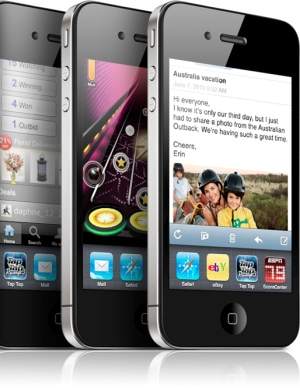When Verizon launched the iPhone 4 last week, we all knew it was going to be big. But Verizon broke first-day sales records in only two hours of release on February 3rd, between 3 and 5 a.m. despite the phone being the same model released by AT&T over eight months ago.
Although Verizon and Apple have yet to release official numbers of phones sold, analyst Mike Abramsky of RBC Capital Markets estimates the pre-order sales to be around 100,000 sold.

At that rate, Abramsky believes that Verizon, Apple, and Best Buy will sell over 1 million phones within the first week, which accounts for the entire stock put forth by Apple.
The fact that the iPhone completely sold out between 3 and 5 a.m. “Affirms the strong pent-up demand for the Verizon iPhone, and bodes well for initial sell-through,” said Ambramsky.
Ambramsky believes the iPhone 4 for Verizon will sell 3 to 4 million in the first quarter.
Some analysts argue that Verizon’s iPhone won’t sell as many as its AT&T counterpart mostly because the iPhone 4 is not a new phone, Verizon does not offer the same aggressive early upgrades as AT&T, and many Verizon customers are stuck in two-year Android agreements. Also, Verizon’s most basic data plan costs around $30 a month while AT&T’s is $15.
That said, at least Verizon’s voice network actually works, which may prompt some iPhone users to switch to Verizon now that the iPhone is available on the network.
As for 2011, Ambramsky estimates Verizon will sell around 9 and 10 million iPhones at minimum, based on the figure that the number of customers using smartphones will grow from 26 to 40 percent. Ambramsky also estimates Apple will capture the majority of Verizon’s smartphones sold, with around 40% of users on the iPhone and 37% on Android phones.
Worldwide, Ambramsky believe Apple will sell 75 million iPhones in 2011, which gives Apple around 58% percent growth over the year. If Verizon hits the estimated 9 to 10 million units sold, it will account for 12 to 13 percent of global iPhone sales in 2011.
(Via Apple Insider)






